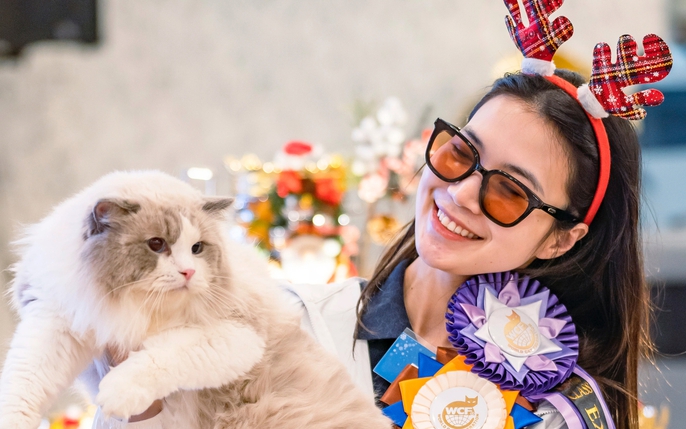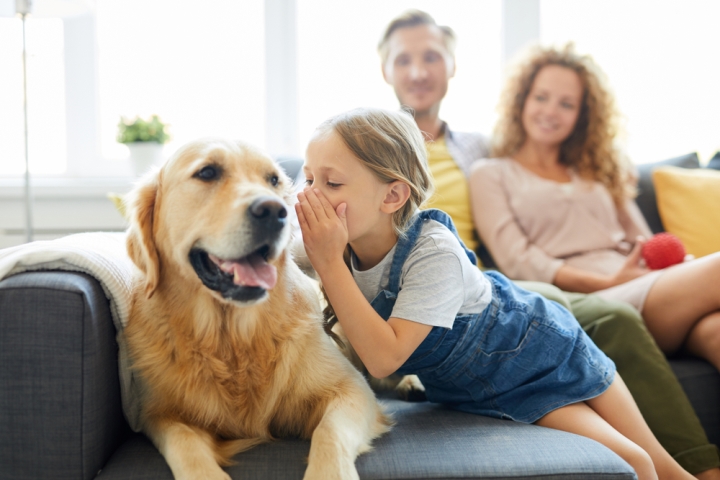Top 5 Ways to Protect Pets During the Holiday Season
The holiday season is a joyful time, but it also poses numerous risks for our beloved pets. To ensure the health and safety of your furry companions, let’s explore why it’s crucial to pay extra attention to them during this festive period.
Changes in Living Environment
The holiday season often brings significant changes to a pet’s environment, which can lead to stress and anxiety:
- Noise: Fireworks, loud music, and other sounds from holiday activities can scare pets, causing stress or even prompting them to run away.
- Smoke and Fumes: Smoke from fireworks or candles can irritate pets’ respiratory systems, especially in sensitive species like cats.
- Disruption: The presence of guests and changes in daily routines can leave pets feeling disoriented and anxious.
Risk of Poisoning
The festive season also introduces various hazards related to foods, plants, and chemicals:
- Food: Holiday treats like chocolate, grapes, onions, and chicken bones contain harmful substances for pets.
- Medications: Human medications and insecticides can cause severe poisoning if ingested by pets.
- Decorative Plants: Common holiday plants like poinsettias, mistletoe, and marigolds can be toxic if pets chew on their leaves or flowers.
Risk of Injury
Decorations and festivities can inadvertently cause harm to pets:
- Decorations: Small decorative items such as baubles, string lights, and tinsel can choke or harm pets’ digestive systems if accidentally swallowed.
- Fireworks: Loud explosions and debris from fireworks can frighten pets and potentially injure them.
Loss
The hustle and bustle of the holidays increase the risk of pets getting lost:
- Open Doors: Amid the busy holiday preparations, open doors can provide an opportunity for pets to escape.
- Inattention: The festive atmosphere may lead some owners to lose focus on their pets, increasing the chances of them getting lost.

Top 5 Ways to Protect Pets During the Holiday Season
1. Ensure a Safe Living Environment for Pets
- Remove hazardous items: While decorating your home, carefully eliminate small, sharp objects like tinsel, string lights, and glass shards. These items can injure pets or cause harm if accidentally ingested.
- Christmas tree: Whether real or artificial, Christmas trees pose various risks. Pine needles can damage pets’ digestive systems if ingested. Additionally, blinking lights and electrical cords can be dangerous.
- Decorations: Small ornaments and tinsel can cause choking or intestinal blockage. Secure decorations properly to prevent pets from knocking them over or breaking them.
- Medications: Keep all medications and household chemicals out of pets’ reach. Many drugs can cause severe poisoning if ingested.
2. Pay Attention to Your Pet’s Diet
- Avoid feeding pets leftovers: Holiday foods like cookies, candy, and chicken bones often contain spices, fats, and sugar that can upset pets’ digestion or even lead to obesity.
- Do not feed pets chocolate, grapes, or onions: These foods contain toxic substances that can harm pets’ kidneys, liver, and nervous systems.
- Prepare pet food in advance: Ensure that pets always have sufficient food and fresh water.
3. Protect Pets from Noise and Lights
- Create a quiet space: Set up a calm corner in your home, away from noisy areas like living rooms or party venues.
- Use pheromones: Pheromones can help calm pets by making them feel safe and relaxed during stressful situations.
- Close windows and doors: On days with fireworks, keep windows and doors shut to minimize exposure to noise and bright lights.
4. Ensure Safety When Taking Pets Outdoors
- Use a leash for walks: Always keep pets securely leashed to prevent them from running away or causing accidents.
- Avoid crowded areas: Refrain from taking pets to busy locations, especially during the holidays.
- Carry waste bags: Always bring waste bags to maintain cleanliness and environmental hygiene.
5. Monitor Your Pet’s Health
- Ensure vaccinations are up-to-date: Make sure your pets are fully vaccinated to protect them from diseases.
- Schedule regular check-ups: Take pets for routine health checks to detect potential health issues early.
- Watch for unusual signs: If your pet shows symptoms such as loss of appetite, vomiting, or diarrhea, consult a veterinarian immediately.

Did You Know?
- Cats are highly sensitive to noise and changes: Create a quiet and safe space for your cat during the holidays.
- Puppies and senior dogs require special care: Puppies and older dogs are more vulnerable and fragile, so they need extra attention.
- Prepare a pet first-aid kit: A first-aid kit will help you handle emergency situations quickly and effectively.
A Season of Love and Care
Protecting pets during the holiday season is not only the responsibility of pet owners but also a meaningful way to show love and care for them. By following the tips above, you contribute to creating a safe and joyful holiday season for your entire family, including your beloved four-legged friends.
See also:
Responsible Pet Ownership to Protect Shared Spaces
Foods Cats Should Avoid: A Comprehensive Guide
Vận Chuyển Hỏa Tốc Trầm Hương An Toàn, Nhanh Chóng
GỬI HOẢ TỐC MỨT DỪA TỪ CẦN THƠ ĐI HÀ NỘI NHANH CHÓNG














